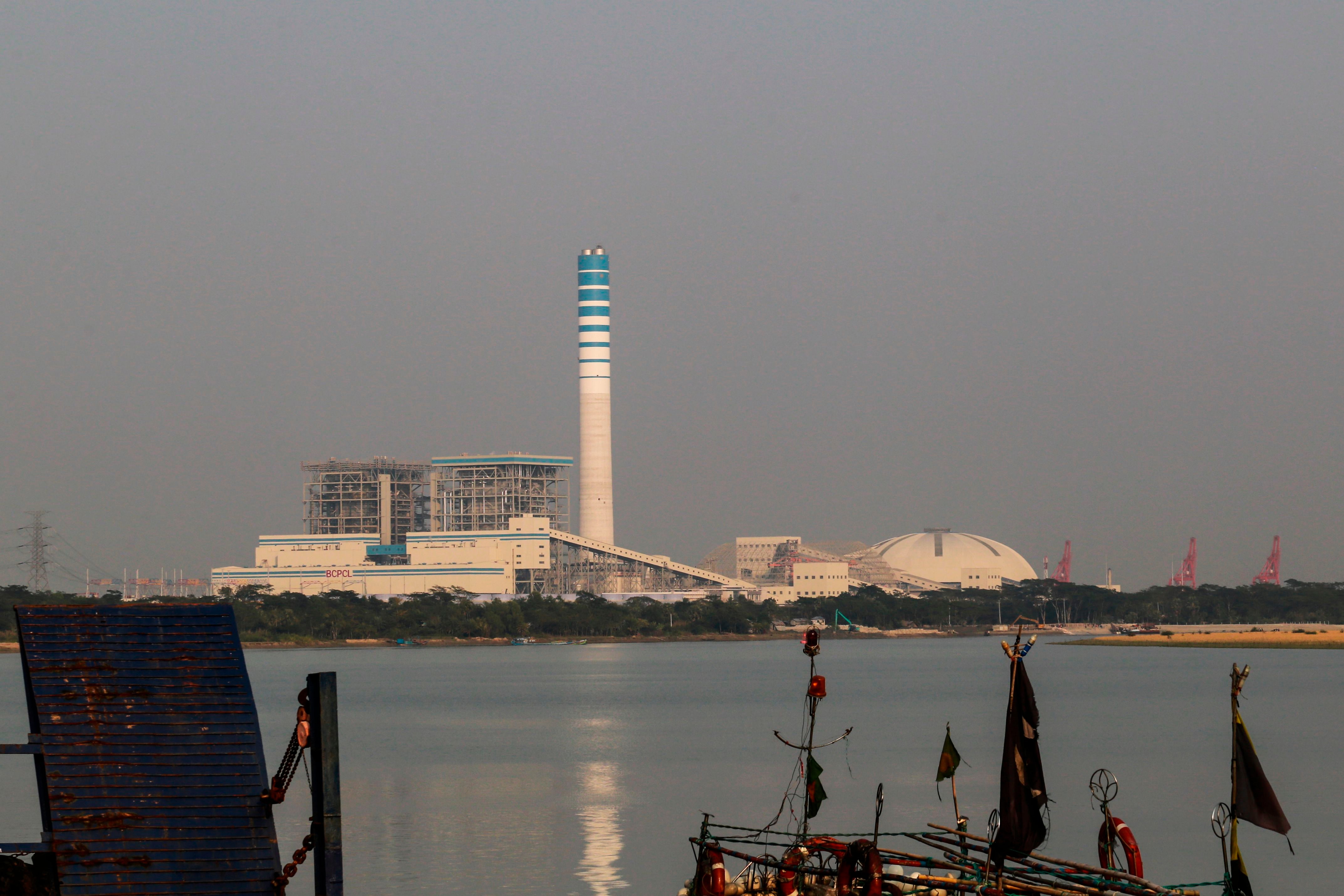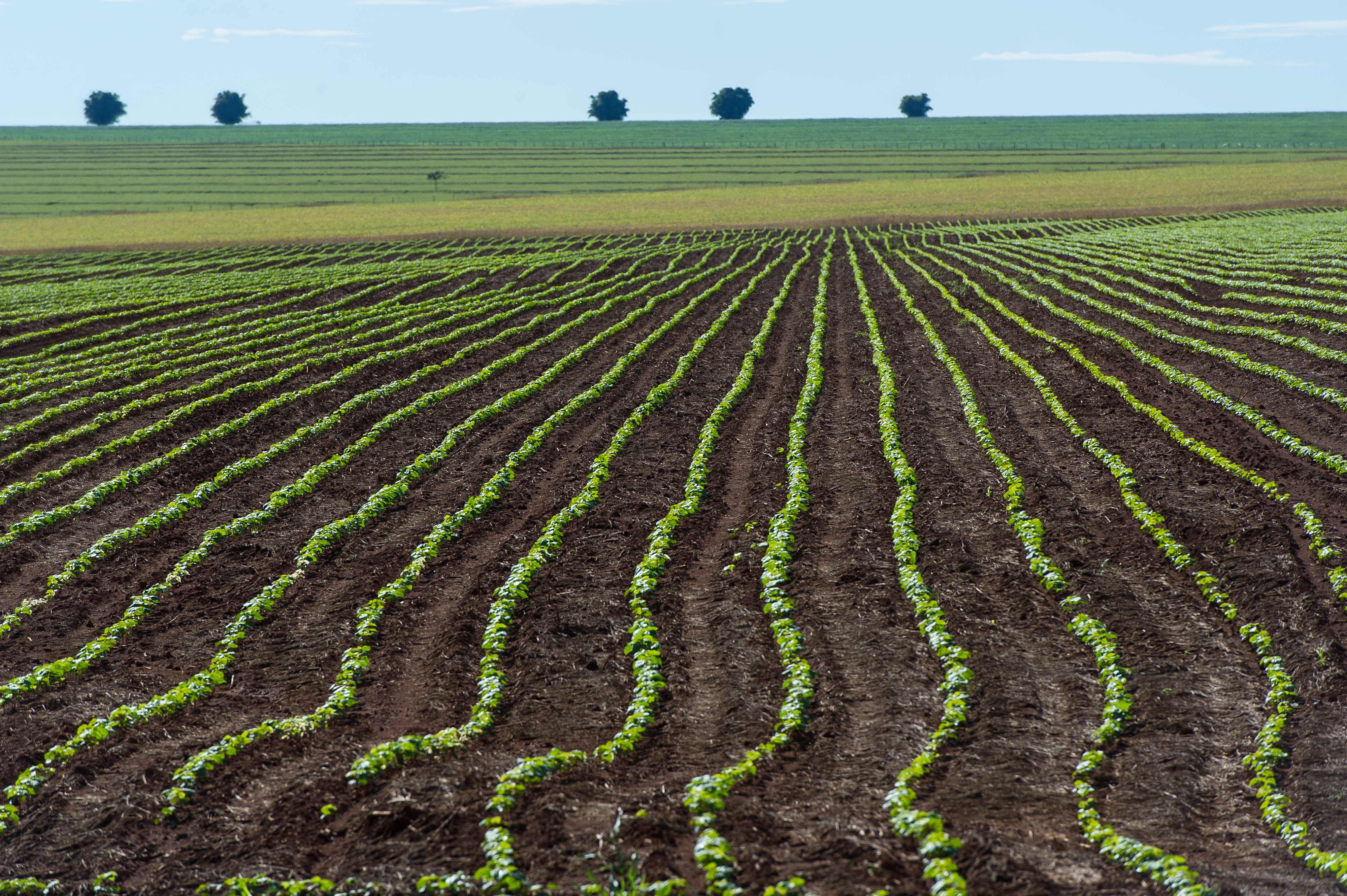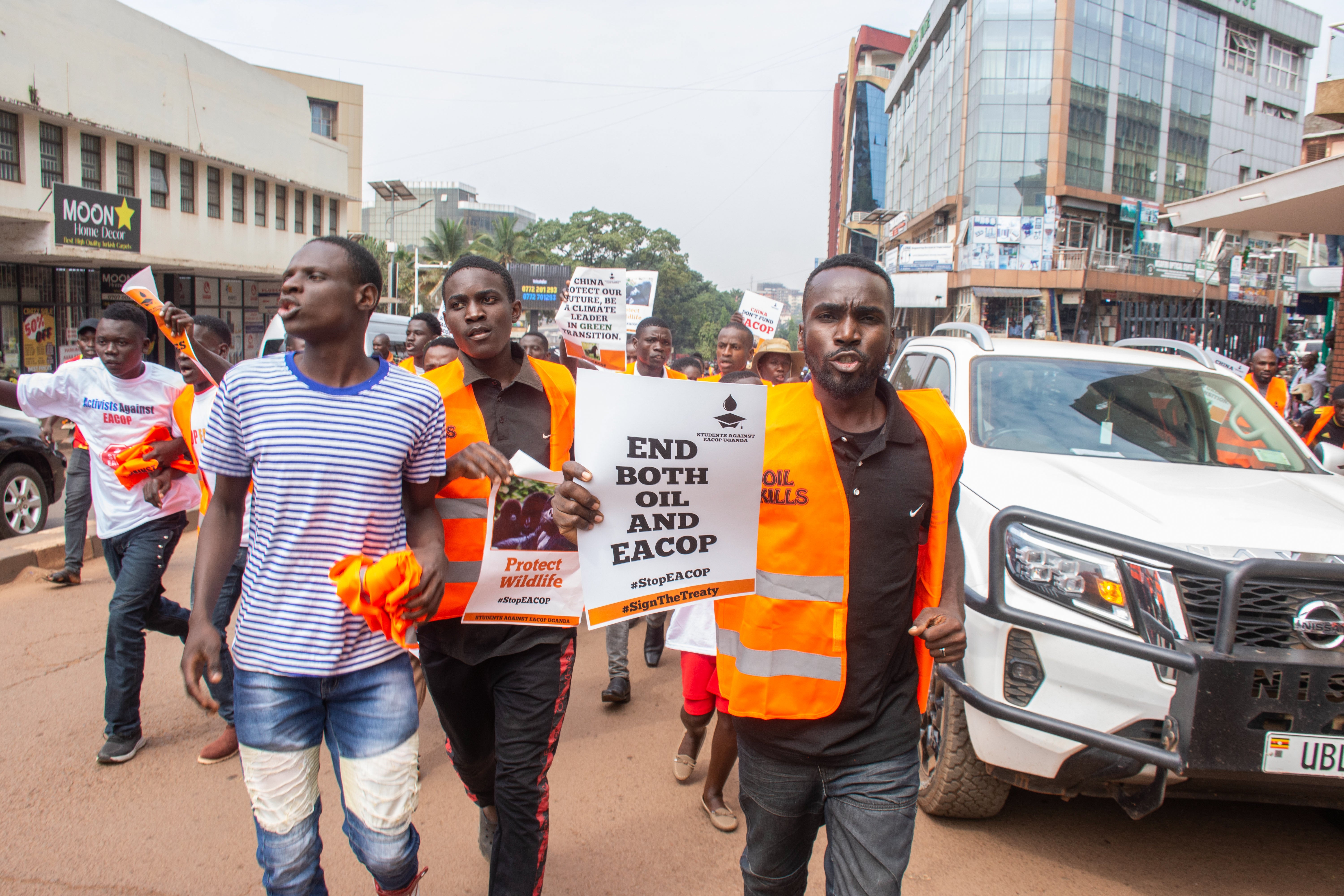
ActionAid UK has accused HSBC of “choosing profit over people and planet” – saying it is pulling the “majority” of its accounts from the banking giant over the funding of climate-damaging projects.
New research carried out by the charity and consultancy Profundo, which has been shared exclusively The Independent, alleges that HSBC’s financing of fossil fuels and industrial agriculture between 2021 and 2023 is linked to an estimated £128bn in climate-related damage: a figure nearly three-times the £43.4bn the bank made in net profit over the same period.
This figure was reached using the social cost of carbon (SCC) model, which estimates the economic damages that result from emitting one additional tonne of carbon dioxide into the atmosphere. The impact of HSBC’s funding was assessed at 356 million tonnes of carbon dioxide, costing £128bn.
The findings come just months after HSBC announced that it would delay its target to reach net zero across its own operations by two decades, from 2030 to 2050. Recent analysis from the Bureau of Investigative Journalism and The Independent also found that HSBC has been undermining a key pledge to stop funding companies that were increasing coal production. HSBC says it has a clear set of sustainability risk policies, with the aim of getting its portfolio to net zero by 2050.
As a result of the latest research, ActionAid said that it is moving “the majority” of its accounts away from HSBC, after “years of raising the alarm over its climate and human rights record”.
“HSBC’s investments show it is choosing profit over people and planet,” said Hannah Bond, co-CEO at ActionAid UK.
“Moving our money is not just symbolic; it’s a vital first step in challenging destructive financial systems and standing firmly by our values.”
Researchers also found that the bank had funded £153bn into oil, gas, and agricultural business operations from 2021 to 2023. This includes £142bn in loans and underwriting and £11bn in investments in bonds and shares.

“We’ve been trying to push HSBC to change their ways for a long time, but instead they have continually demonstrated that they are not committed to net zero [greenhouse gas emissions],” Zahra Hdidou, one of the authors of the report, told The Independent.
Hdidou said that moving away from HSBC is a challenge for the organisation, given that there are “very few banks” that offer the kinds of services that ActionAid, an international NGO working in high risk settings, requires.
ActionAid is now banking with Lloyds Banking Group, another large international lender, but one with a “better track record than HSBC”, said Hdidou.
Analysis of UK banks from NGO InfluenceMap, which was published in May, found that all of the “big four” UK banks – Barclays, HSBC, Lloyds Banking Group and NatWest – had not fully aligned their policies with their long term commitments to net zero, with all failing to adopt sufficiently robust fossil fuel investment exclusion policies.
However, while HSBC had lobbied to weaken the UK’s climate-related policy, Lloyds had shown consistent support for government policy seeking to direct financing towards the energy transition, InfluenceMap found.
In response to claims made in this article, a spokesperson for HSBC said: “We follow a clear set of sustainability risk policies which support our ambition to align the financed emissions in our portfolio to net zero by 2050.
“We do not comment on client relationships, including whether to confirm someone is a client or not.”
Climate impacts on the ground
The report from ActionAid draws on firsthand accounts from communities impacted by projects that have received financial support from HSBC, including in Bangladesh and Tanzania.
Analysis of financial flows to such projects, as well as their emissions impacts, is what led ActionAid and Profundo to estimate the overall impact of HSBC’s business on the climate.
In Patuakhali, coastal Bangladesh, communities living near the HSBC-financed United Payra Power oil-fired power plant have detailed the large impact on their lives.
The plant burns heavy fuel oil, releasing black dust and industrial waste into the air and water. Water sources, including a local river, have seen collapsing fish stocks and destroying farmland, according to community members. “Water is life, but here, it has become poison,” one street vendor told ActionAid.
One woman shared that every morning her house is caked in a layer of black dust: “We breathe this in every day. Our children have constant coughs, but where can we go? This is our home.”
Farah Kabir, country director at ActionAid Bangladesh, told The Independent: “New investments in fossil fuels, like the UPPL project in Patuakhali, are difficult to justify in a world striving to meet [climate goals].
“While HSBC presents itself as a climate and sustainability leader, the reality in places like Patuakhali paints a different picture. We hope HSBC will align its commitments with the urgent realities faced by climate-vulnerable areas like Bangladesh.”
In response to the above claims, Rahat Bin Kamal, power division general manager at the United Group, said that the type of power plant in question “does not produce dust”, and this particular plant also “does not produce any effluent discharge”.
Kamal further suggested that the problems cited may be due to the activities of nearby coal plants, rather than United Payra Power.
“There is a robust grievance redressal mechanism at the plant,” Kamal added. “No complaints have been lodged regarding any of the topics mentioned.”

Meanwhile, in Brazil, HSBC provided US$37m in loans and underwriting services attributable to the soybean industrial farming operations of commodities giant Cargill.
One soy farm linked to Cargill, the 33,975 hectare Fazenda Palmares, is alleged to have contributed to 39.7 hectares of deforestation according to satellite image analysis, which in turn is estimated to have resulted in emissions of 6,981 metric tonnesof CO2.
Another soy farm linked to Cargill, the 5,589 hectare Fazenda Tapera Grande, is found to have carried out 981 hectares of deforestation, which in turn is estimated to have resulted in emissions of 126,110 metric tonnesof CO2.
“HSBC's claim to be a leader on climate and ESG reveals a glaring gap between its rhetoric and its practice,” ActionAid Brazil’s Junior Aleixo told The Independent.
“HSBC is moving in the opposite direction of social and environmental responsibility in Brazil by financing companies such as Cargill, a key player in the expansion of industrial soy in the Brazilian Cerrado, contributing to deforestation, forced land evictions, and threats to the rights of Indigenous communities.”
In response to the claims outlined here, a spokesperson for Cargill said: “Cargill is committed to protecting vital ecosystems in South America and treating people with dignity and respect in the workplace and communities where we do business.”
The spokesperson added that the allegations made against Cargill in the report were previously investigated as part of the company’s grievance process. They added that if violations are found by the company in any area, Cargill takes “immediate action” according to its Supplier Code of Conduct and Policy on South American Soy.

ActionAid also finds that HSBC has provided indirect financing for the controversial East African Crude Oil Pipeline (EACOP): a 1,147km-long export pipeline designed to transport oil from fields in Uganda to the Tanzanian coast.
The pipeline has faced intense criticism over its environmental impact and reported human rights abuses, including recent unlawful arrests in Uganda that The Independent has reported on.
According to ActionAid, HSBC provided $1.9bn in loans and underwriting services to TotalEnergies, and a further $340m to the China National Offshore Oil Company: Both joint venture owners of EACOP.
While HSBC has said publicly that it will not support EACOP over ethical concerns, Action Aid alleges that its financing for the companies behind the project “indirectly facilitates extractive activities and allows these industries to continue.”
The Independent has also approached TotalEnergies and China National Offshore Oil Company for comment.
As a result of the claims made in its new report, ActionAid said that it is calling on HSBC to “cease funding immediately” to any company expanding fossil fuel operations or industrial agriculture linked to deforestation, as well as to adopt gender due diligence in its processes, and fully disclose financed emissions.
ActionAid is also calling on the UK government to mandate banks to disclose financed emissions – with clear timelines to end support for fossil fuels and deforestation.
In response to claims made by ActionAid and The Independent, the UK Department for Energy Security and Net Zero pointed to plans announced by the government last week to consult on how to make the UK the sustainable finance capital of the world.
Millions of US kids attend schools in dangerous ‘urban heat zones,’ analysis finds
Heat waves bring dangerous and deadly lightning strikes. Here’s how to avoid them
William urges ‘courage’ ahead of world leaders meeting at Cop30
Australia bomb cyclone live: Flood emergency warnings issued
Hosepipe ban looms for millions of Yorkshire households
Man accused of dumping 27 tonnes of waste in country lane appears in court







